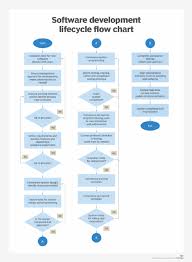Mastering Secure Software Development Practices for Robust Applications
The Importance of Secure Software Development
In today’s digital age, secure software development has become a critical aspect of creating reliable and trustworthy applications. With cyber threats on the rise, it is essential for developers to prioritize security throughout the software development lifecycle.
Why Secure Software Development Matters
Secure software development involves implementing security measures at every stage of the development process. By integrating security practices from the initial design phase to deployment and maintenance, developers can mitigate potential vulnerabilities and protect sensitive data from cyber attacks.
Key Principles of Secure Software Development
There are several key principles that developers should follow to ensure secure software development:
- Threat Modeling: Identifying potential threats and vulnerabilities early in the development process.
- Secure Coding Practices: Writing code that is resistant to common security vulnerabilities such as SQL injection, cross-site scripting, and buffer overflows.
- Regular Security Testing: Conducting thorough security testing, including penetration testing and code reviews, to identify and address security flaws.
- Secure Configuration Management: Implementing secure configuration settings for servers, databases, and other components to reduce exposure to attacks.
- Continuous Monitoring: Monitoring applications in real-time to detect and respond to security incidents promptly.
The Benefits of Secure Software Development
By prioritizing secure software development practices, developers can enjoy various benefits, including:
- Data Protection: Safeguarding sensitive data from unauthorized access or theft.
- User Trust: Building trust with users by demonstrating a commitment to protecting their information.
- Compliance: Ensuring compliance with industry regulations and standards related to data privacy and security.
- Business Reputation: Protecting the reputation of the organization by avoiding data breaches and security incidents that could damage credibility.
In Conclusion
In conclusion, secure software development is essential for creating robust and resilient applications that can withstand evolving cyber threats. By integrating security into every phase of the development process, developers can build trust with users, protect sensitive data, and maintain a strong reputation in an increasingly digital world.
Top 8 FAQs About Secure Software Development
- What does a secure software developer do?
- What is secure software development process?
- How do you secure a software development process?
- What are the five stages of the secure software development life cycle?
- What is a secure software development?
- What are the requirements for the secure software development process?
- What is the difference between DevSecOps and secure software development?
- What is secure software engineering?
What does a secure software developer do?
A secure software developer plays a crucial role in ensuring that applications are built with strong security measures to protect against potential cyber threats. These professionals are responsible for implementing secure coding practices, conducting regular security testing, and staying updated on the latest security vulnerabilities and best practices. By following secure software development principles and incorporating security into every stage of the development lifecycle, secure software developers help create robust and trustworthy applications that safeguard sensitive data and maintain the integrity of systems in an increasingly digitized world.
What is secure software development process?
The secure software development process refers to the methodical approach taken by developers to integrate security measures at every stage of creating software. It involves identifying potential threats, implementing secure coding practices, conducting regular security testing, configuring systems securely, and continuously monitoring for vulnerabilities. By following a secure software development process, developers can enhance the resilience of their applications against cyber threats and protect sensitive data from unauthorized access. This proactive approach helps ensure that software is built with security in mind from the initial design phase to deployment and maintenance, ultimately contributing to a more trustworthy and reliable end product.
How do you secure a software development process?
Securing a software development process involves implementing a comprehensive approach to address potential security risks and vulnerabilities throughout the entire lifecycle of the software. To secure a software development process effectively, developers should start by conducting thorough threat modeling to identify and assess potential threats early on. Secure coding practices, such as input validation and proper error handling, should be followed to prevent common security vulnerabilities. Regular security testing, including penetration testing and code reviews, is essential to identify and remediate any security flaws. Additionally, implementing secure configuration management and continuous monitoring are critical steps to ensure that the software remains secure even after deployment. By integrating these practices into the software development process, developers can enhance the security posture of their applications and protect them from cyber threats.
What are the five stages of the secure software development life cycle?
The five stages of the secure software development life cycle are crucial for ensuring the creation of secure and reliable software applications. These stages include requirements analysis, design, implementation, testing, and maintenance. During requirements analysis, potential security risks and vulnerabilities are identified to establish security goals. In the design phase, security controls and mechanisms are integrated into the architecture of the software. Implementation involves writing secure code following best practices to prevent common vulnerabilities. Testing is essential to identify and address security flaws through various methods such as penetration testing and code reviews. Lastly, maintenance ensures that the software remains secure by applying patches and updates to address emerging threats. Each stage plays a vital role in developing software that prioritizes security from inception to deployment and beyond.
What is a secure software development?
Secure software development refers to the practice of integrating security measures into every stage of the software development lifecycle to create applications that are resistant to cyber threats and vulnerabilities. It involves implementing secure coding practices, conducting regular security testing, and following established security protocols to mitigate risks and protect sensitive data from unauthorized access or exploitation. By prioritizing security from the initial design phase through deployment and maintenance, secure software development aims to build trustworthy and resilient applications that uphold data privacy, user trust, and regulatory compliance.
What are the requirements for the secure software development process?
When it comes to the secure software development process, there are several key requirements that developers need to adhere to in order to create robust and secure applications. These requirements include implementing threat modeling to identify potential vulnerabilities, following secure coding practices to prevent common security issues, conducting regular security testing to detect and address flaws, maintaining secure configuration settings for all components, and establishing a system for continuous monitoring to respond promptly to security incidents. By meeting these requirements throughout the software development lifecycle, developers can enhance the security posture of their applications and protect sensitive data from cyber threats.
What is the difference between DevSecOps and secure software development?
The difference between DevSecOps and secure software development lies in their respective approaches to integrating security into the software development process. Secure software development focuses on incorporating security practices throughout the entire development lifecycle, from design to deployment, with a primary emphasis on building secure code and addressing vulnerabilities. On the other hand, DevSecOps is a methodology that integrates security practices into the DevOps workflow, emphasizing collaboration between development, operations, and security teams to automate security testing and ensure continuous monitoring and improvement of security measures throughout the software delivery pipeline. While both approaches prioritize security, DevSecOps places a stronger emphasis on automating security processes and fostering a culture of shared responsibility among cross-functional teams.
What is secure software engineering?
Secure software engineering refers to the practice of integrating security measures into the entire software development lifecycle to create applications that are resilient against cyber threats. It involves identifying potential security risks, implementing secure coding practices, conducting regular security testing, and maintaining secure configurations. By prioritizing secure software engineering principles, developers can mitigate vulnerabilities, protect sensitive data, and build trust with users by demonstrating a commitment to safeguarding their information throughout the development process.




